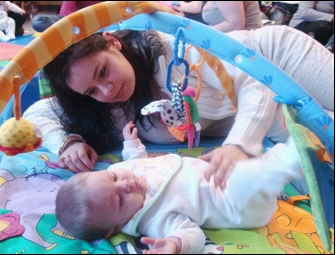Canada: Maternal Mortality Worsens
|
Published on Mon, 2011-04-25 07:41
Source: Canadian Feminist Alliance for International Action (FAFIA) Women in Boznia and Herzegovia now have a greater chance of surviving childbirth than women in Canada, according to the Feminist Alliance for International Action (FAFIA), focal point of Social Watch in that North American country. Even as the Prime Minister identifies reducing maternal and child mortality as “the most important initiative we have right now,” Canada’s own maternal mortality rates are rising. According to the World Health Organization, Canada has seen a steady increase in the maternal mortality ratio over the past decade. Women in Boznia and Herzegovia now have a greater chance of surviving childbirth than women in Canada, warned the Feminist Alliance for International Action (FAFIA). In spite of the $1.1 billion committed to maternal and child health outside of Canada, there appear to be no investments aimed at addressing the increase within Canada. Rather, the 2011 Federal Budget would have invested $24 million in research aimed at decreasing mortality rates for pigs, rather than women. The economy may be the central concern of Canadian voters, but at the heart of the debate about spending and taxes are the priorities that are reflected in economic choices. The Harper Government’s Economic Action Plan has focused on job-creation in industries where few women work, diminished the social safety nets that protect Canadians during difficult economic times, and provided tax breaks in which women have little share. In Canada today, two-thirds of all mothers with children under the age of six do paid work. The Harper Government cancelled a national child-care plan that would ensure that all working parents would have increased access to safe, affordable child care while they are working. “Throughout northern and rural areas of Canada women don’t have access to basic medical services. Pregnant women are forced to travel long distances alone, often leaving their older children behind, while they wait for weeks to give birth in regional centres,” says FAFIA Chair, Mira Hall. “Our government should be working to ensure that everyone in Canada has access to essential services, and is able to meet their basic needs and less on the well-being of those who are already well-off.”
» |
SUSCRIBE TO OUR NEWSLETTER



